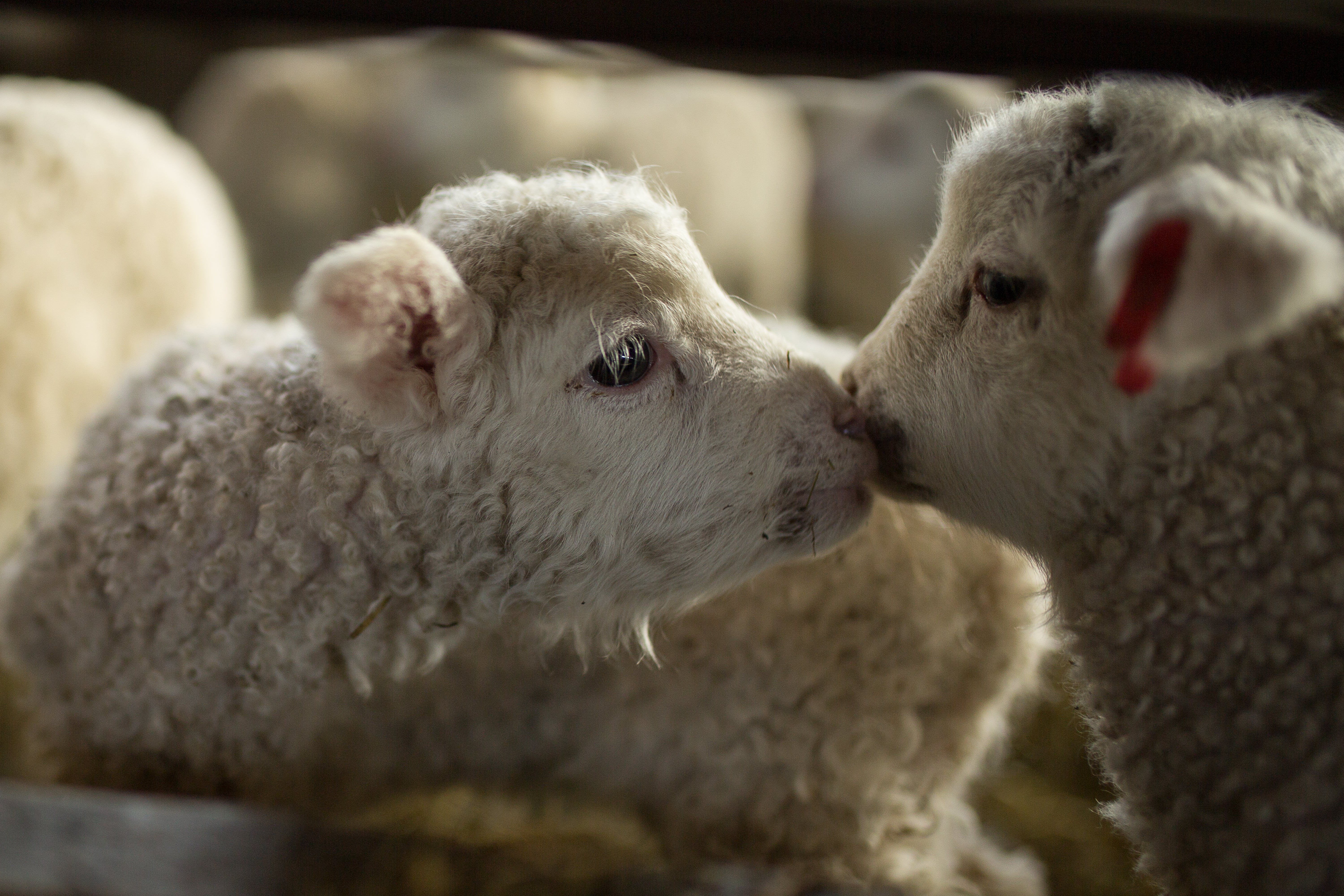Here’s why you should make this Easter a vegan one
Roast lamb is the traditional food of Easter Sunday, but how many people would eat it if they knew the story of that lamb, before it arrived on their plate?


Your support helps us to tell the story
From reproductive rights to climate change to Big Tech, The Independent is on the ground when the story is developing. Whether it's investigating the financials of Elon Musk's pro-Trump PAC or producing our latest documentary, 'The A Word', which shines a light on the American women fighting for reproductive rights, we know how important it is to parse out the facts from the messaging.
At such a critical moment in US history, we need reporters on the ground. Your donation allows us to keep sending journalists to speak to both sides of the story.
The Independent is trusted by Americans across the entire political spectrum. And unlike many other quality news outlets, we choose not to lock Americans out of our reporting and analysis with paywalls. We believe quality journalism should be available to everyone, paid for by those who can afford it.
Your support makes all the difference.Easter is a time of celebration – gathering with loved ones, sharing food, enjoying time off work and welcoming the arrival of spring. Some remember the sacrifice of Jesus on the cross, others simply eat hot cross buns. Whatever the holy days are about for you, putting the carcass of a baby animal on the dinner table seems jarring to me.
Roast lamb is the traditional food of Easter Sunday, but how many people would eat it if they knew the story of that lamb, before it arrived on their plate? When we see sheep out in fields it’s easy to smile and think they have better lives than us, frolicking and nibbling their grass. But the truth is hidden from view. Right from the moment of conception, these animals are hurt and exploited.
Lamb meat is most profitable around Easter time, so farmers induce pregnancies unnaturally early in the year, meaning some of the babies die because they are unable to withstand the freezing temperatures of winter. In natural circumstances they would be born in spring, when the weather is warmer and food more plentiful.
Within days of their birth, their torment begins. It’s standard practice to castrate the male lambs, to make them more docile for farmers and to make their meat taste sweeter. This is usually done when the babies are less than a week old. Soon after the castration, they suffer a second painful mutilation when their tails are docked, using a hot iron, tight rubber ring or knife.
They’re still juniors when they’re sent to slaughter at the age of between 10 weeks and one year. The average age of their death is six to seven months. In natural circumstances these animals could have lived up to 12 years old.
After a gruelling journey, they arrive at the slaughterhouse and are lined up to await their fate. They often smell the fear and blood of their brothers and sisters as they wait in cramped pens. When it is their turn to be killed, they cry and tremble until stunned, using either electrodes clamped onto each side of their head, or a bolt gun.
However, the stunning doesn’t always work, and some slaughterhouses don’t stun at all, so these lambs of God can be partially or fully conscious as they are hoisted onto an overhead rail where a slaughter worker slices their throat and waits for them to bleed to death. Jesus may have forgiven his killers, saying: “Father, forgive them, for they know not what they do.” But more than 11 million sheep were killed for their meat in the UK last year. Their killers know exactly what they’re doing.
Milk chocolate eggs are another Easter tradition and they, too, are the product of animal suffering. On dairy farms, female cows are artificially inseminated in what the farmers call “rape racks”". This starts at the age of 15 months. When they give birth, each calf will be stolen away within 36 hours so the dairy farmers can sell the milk that the mother made for her baby. Mother and baby will both cry out for each other.
If the baby is male, he will be considered a by-product and killed quickly. If the baby is female, she will be pushed into the same rapacious cycle as her mother. Once her body is exhausted from the exploitation, she will be sent to the slaughterhouse and killed.
To keep up to speed with all the latest opinions and comment, sign up to our free weekly Voices Dispatches newsletter by clicking here
I realise that none of this is easy to read – but the problem is the cruelty, not me pointing to the cruelty. And the cruelty only happens because you pay for it to happen by buying meat or dairy.
The better news is that supermarkets and restaurants are launching more and more delicious vegan dishes, including plant-based Easter eggs and meat substitutes. It’s possible to enjoy your favourites without harming animals, so why would you not?
When I went vegan, a huge weight was lifted off my shoulders. I’d known deep down for so long that I was paying for cruelty to happen, so it felt wonderful to stop. I was also amazed how easy it was. The whole thing felt so liberating.
During Easter, and springtime itself, reinvention and renewal is in the very air we breathe. We emerge from the darkness of winter into the light of spring. What better time to show mercy to animals and go vegan?
Join our commenting forum
Join thought-provoking conversations, follow other Independent readers and see their replies
Comments